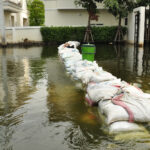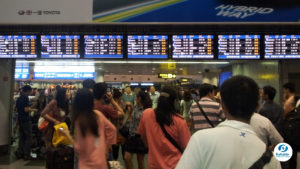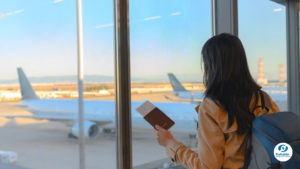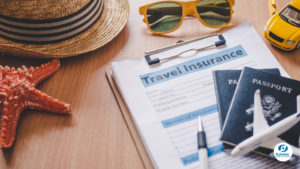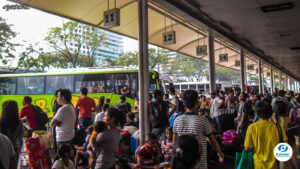Travelling abroad is one of life’s greatest experiences—but it also comes with real risks if you’re not prepared. Imagine landing in a new country only to be denied entry for missing a required vaccine, or to scramble to find help in a medical emergency with no local knowledge or support.
For Filipinos exploring international destinations—whether for leisure, work, or study—knowing what to check before you go is an important step in making sure your trip is safe, stress-free, and truly memorable. This guide walks you through key health and safety concerns, vaccination requirements, and emergency tips to help you travel smart, stay protected, and make the most out of every moment abroad.
Checking Up on Global Health
Information access can be easy in the age of the Internet, especially for health incidents worldwide. Where you came from might be healthy, but how sure are you that your destination is?
One of the best one-stop sources of information on disease or other global health issues around the world is the Health Emergency Dashboard of the World Health Organization (WHO). This freely-accessible service presents global health issues on a map, with incidents marked for easy reference:
- Purple dots on the map are Health Incidents, often disease outbreaks in various locales and nations. The size of each dot indicates the number of incidents in that area. Click on any dot to get a summary of the health incident being reported.
- Pink dots are “Attacks on Health” incidents, often violent action, threat of violence, obstruction, or psychological coercion that interferes with the healthcare services.
There is also a button on the map that lists reports from national sources regarding health incidents. You can also find relevant reports when you click the dots.
The United States Centers for Disease Control (CDC) actively monitors health situations abroad and provides advisories on them. Given the resources and reach of the United States, the CDC’s Travelers’ Health section is a good reference point when checking on the health situation anywhere in the world.
For local sources, two you can check on are the Department of Foreign Affairs, the Department of Health, and the Philippine News Agency. These often issue advisories to note significant health incidents abroad. For example, the Philippine government issued an advisory for any Filipinos travelling to Japan due to a spike in influenza cases.
Vaccination Requirements
Countries could also require visitors to take vaccines for several diseases before visas are issued or entry is allowed for non-Visa travel (like among ASEAN member nations). This is similar to the requirements for taking any of the COVID-19 vaccines during the pandemic once limited travel was allowed. Some common diseases often requiring vaccine shots include all types of Hepatitis, Measles and the various Poxes, and Tuberculosis.
A good resource for checking vaccine requirements is, again, the US CDC, which has an extensive database on requirements for travelling to any destination. Just find your destination on the drop-down menu and browse the relevant information. For the curious, here is the current information on the Philippines.
Countries will also announce any standard or on-demand vaccinations for visitors. These are often posted on the respective country’s Foreign Affairs, State, or Health department websites and social media accounts, where available.
Embassies and Consulates will also often provide advisories on any vaccinations required for travel to their countries. If you let travel agencies handle your trips, you might also ask them to check for any required vaccinations for your destination.
Make a Traveler’s Checklist
Whether you’re a seasoned traveler or going off on your first trip abroad, one of the best habits to form is to make a checklist. Writing down all the things you must bring along and various reminders helps offload the chore from your mind and minimizes the risk of forgetting important items or key topics in the rush and stress of travelling.
Some common items that should be on your checklist are:
- Your passports
- Key travel documents (especially if going on business)
- Additional government-issued IDs
- Necessary medications, like maintenance drugs
- Important items you need to bring, depending on where you’re going and what you’re going to do there
Please note that certain medications may be restricted in your destination country, especially for ailments that require controlled substances. Check with that country’s consulate or embassy before your travel and get any necessary permits.
The US State Department offers a comprehensive “Traveler’s Checklist” that you can refer to if you absolutely want to be sure you go out prepared. Among the items included in the State’s checklist are medical items, travel insurance, and crisis management tips.
Health Emergencies While Abroad
While uncommon, it does happen that a traveler gets into a medical emergency abroad. Here are some tips on handling them:
- Bring a travel first aid kit with you. These should contain over-the-counter and non-contraband items like disinfectants, bandages, and other medications for common emergencies.
- Prepare for any specific needs. This includes knowing any particular ailments of your companions and how to treat them. If you are travelling alone and have specific medical requirements, always carry a medical information card with easy-to-follow medical instructions.
- Note emergency numbers for your destination. Most countries have quick-dial emergency services, like America’s 911. Have this on speed dial. It also pays to note clinics, hospitals, and emergency personnel in your immediate vicinity or route.
- Contact your embassy if needed. In case of major emergencies, your consular officials should be able to provide you with assistance. Have embassy and consulate numbers on hand with you at all times in case you need them.
- Get travel insurance. The best way to handle emergencies is to be sure you can get sufficient care when they happen, no matter where you are. Travel insurance helps ensure you’ll get medical attention no matter your destination.
Reliable Insurance Brokers can provide you with a wide selection of travel insurance policies that cover many basic requirements for health issues abroad. Our staff can also advise you on any additional coverage you and your family require. We are committed to your health and well-being and ensure you have access to quality healthcare when or where you need it.
Contact us today to learn how we can help make your international travel safer and healthier.
Contact Information for Inquiries and Support
If you have any questions or need assistance with your insurance, feel free to reach out to us:
- Call: +63 2 8631 9285 to 86
- Mobile: +63 917 138 5120
- Email: info@reliable-insurance.ph
- Messenger: m.me/reliable.insurancebrokersph
Sources:
- World Health Organization Health Emergency Dashboard.
- US Centers for Disease Control (2025), Travel Checklist.
- US Centers for Disease Control (2025), Spring Break Travel.
- US State Department (2025), Traveler’s Checklist.
- Philippine News Agency (2025, Feb 6) Filipino travelers cautioned vs. rising influenza cases in Japan.

